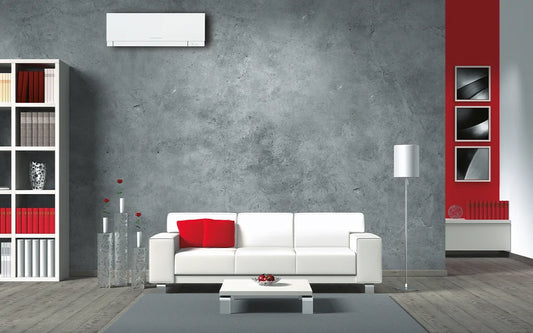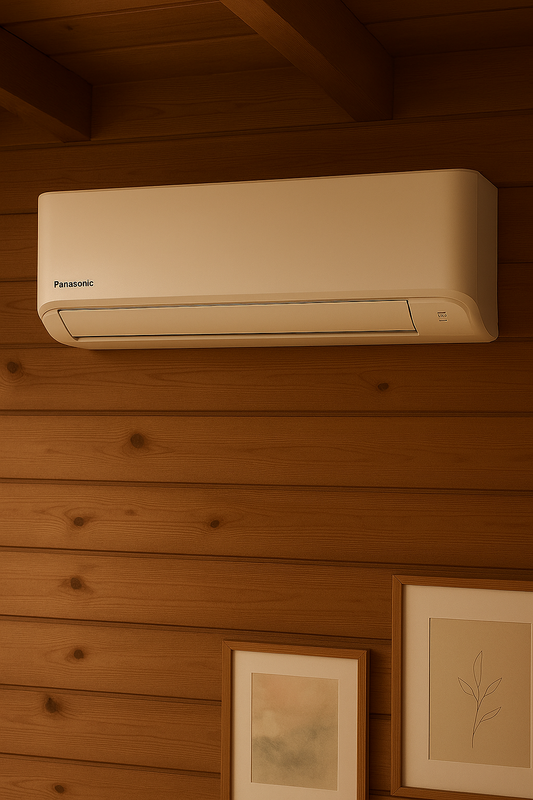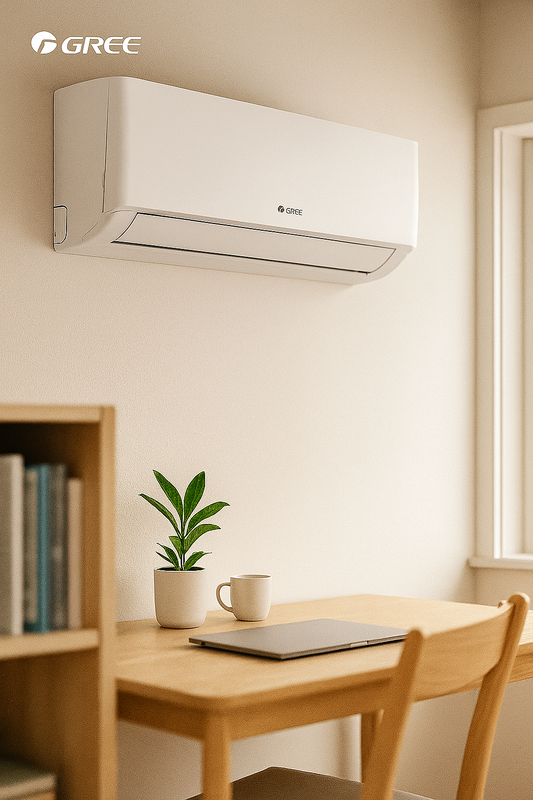Värmepump med installation
Inledning
En värmepump med installation är en effektiv och miljövänlig uppvärmningslösning som har blivit alltmer populär bland både privata hushåll och företag. Den här artikeln kommer att utforska definitionen, fördelarna, användningsområdena och andra relaterade tekniker och begrepp relaterade till värmepumpar med installation.
Definition och bakgrund
En värmepump är en apparat som flyttar värme från en plats till en annan med användning av komprimerad gas. Genom att utnyttja värmen från luft, mark eller vatten kan en värmepump producera värme till ett hus eller en byggnad. Installationen av en värmepump innebär att den installeras och ansluts till en byggnads värmesystem av professionella installatörer.
Fördelar och användningsområden
En värmepump med installation har flera fördelar. Den är energieffektiv och kan hjälpa till att sänka energikostnaderna på lång sikt. Dessutom minskar den användningen av fossila bränslen, vilket leder till minskade koldioxidutsläpp och en positiv miljöpåverkan. Värmepumpar kan användas för att både värma och kyla byggnader, vilket gör dem mångsidiga och användbara året om.
Relaterade tekniker, begrepp eller variationer
Det finns flera olika typer av värmepumpar, inklusive luft-vatten värmepumpar, luft-luft värmepumpar, samt bergvärmepumpar och sjövärmepumpar. Var och en av dessa har sina egna specifika fördelar och användningsområden. Dessutom kan värmepumpar vara anslutna till olika värmesystem, såsom vattenburen golvvärme eller radiatorer.
Vanliga frågor (FAQ)
-
Hur lång tid tar installationen av en värmepump?
Installationstiden kan variera beroende på typen av värmepump och den specifika installationen, men det kan vanligtvis ta några dagar att slutföra installationen av en värmepump. -
Vilka faktorer påverkar valet av värmepump?
Faktorer såsom fastighetens storlek, befintligt värmesystem, geografisk plats och budget kan påverka valet av värmepump. -
Vilken typ av underhåll kräver en värmepump?
En värmepump kräver regelbunden service och underhåll för att bibehålla sin effektivitet. Detta kan inkludera rengöring av filter, kontroll av vätskenivåer och inspektion av komponenter.
Sammanfattning
En värmepump med installation är en effektiv och miljövänlig uppvärmningslösning som erbjuder flera fördelar. Genom att utnyttja värmen från luft, mark eller vatten kan värmepumpar producera värme till byggnader och minska energikostnaderna samtidigt som de minskar miljöpåverkan. Olika typer av värmepumpar och installationer kan anpassas efter specifika behov och förutsättningar.
Med dessa fördelar i åtanke kan en värmepump med installation vara ett attraktivt alternativ för många fastighetsägare och företag som letar efter en effektiv och hållbar värmelösning.
Installation Process
The installation process of a heat pump involves several steps. Firstly, a site survey is conducted to assess the property and determine the most suitable type of heat pump for the specific location. Following this, the necessary preparations for installation, such as electrical connections and space allocation, are carried out. Professional installers then proceed with the actual installation of the heat pump, ensuring that it is integrated seamlessly with the existing heating system.
Energy Efficiency
One of the key advantages of a heat pump with installation is its high level of energy efficiency. By harnessing renewable energy sources, such as air or ground heat, heat pumps can significantly reduce the overall energy consumption of a property. This not only leads to cost savings for the property owner but also contributes to a reduced carbon footprint and sustainable energy usage.
Case Study: Residential Application
In a residential setting, the installation of a heat pump can have a substantial impact on energy usage and comfort. For example, a family home equipped with a heat pump system may experience lower heating costs during the winter months while also benefiting from the cooling capabilities of the heat pump during warmer periods. This versatility makes heat pumps an attractive option for year-round climate control.
Regulatory Incentives
In many regions, there are government incentives and rebates available to encourage the installation of energy-efficient heating systems, including heat pumps. These incentives can take the form of tax credits, grants, or subsidies for homeowners and businesses that choose to invest in sustainable heating solutions. By taking advantage of these incentives, the overall cost of installing a heat pump can be further offset.
Monitoring and Maintenance
Once a heat pump is installed, regular monitoring and maintenance are essential to ensure optimal performance. This includes periodic inspections, filter replacements, and system checks to identify and address any potential issues. By adhering to a maintenance schedule, the longevity and efficiency of the heat pump can be preserved, ultimately maximizing its benefits for the property owner.
Environmental Impact
When compared to traditional heating systems, the use of a heat pump with installation can significantly reduce the carbon footprint of a property. By utilizing renewable energy sources, heat pumps contribute to lower greenhouse gas emissions and support sustainable environmental practices. This aspect makes them a favorable choice for environmentally conscious individuals and organizations.
Smart Technology Integration
Modern heat pump systems often feature smart technology integration, allowing for remote monitoring and control via mobile applications or centralized systems. This level of connectivity enables property owners to manage their heating and cooling settings efficiently, optimizing energy usage and comfort. Additionally, smart features may provide insights into energy consumption patterns, facilitating informed decision-making for further efficiency improvements.
Commercial Applications
Besides residential use, heat pumps with installation are also widely utilized in commercial and industrial settings. From office buildings to manufacturing facilities, the versatility and energy efficiency of heat pumps make them a viable solution for large-scale heating and cooling requirements. Their adaptability to various building designs and heating systems further enhances their appeal in commercial applications.
Real-world Performance Data
Studies and real-world performance data have showcased the effectiveness of heat pump installations in diverse environments and climates. By analyzing data related to energy savings, operational reliability, and user satisfaction, potential adopters can gain valuable insights into the tangible benefits of incorporating a heat pump into their property. These findings contribute to informed decision-making and promote wider adoption of heat pump technology.
Cost Considerations
When evaluating the installation of a heat pump, it is important to consider the initial investment as well as the long-term cost savings. While the upfront costs of installation may vary based on factors such as the type of heat pump and property requirements, the potential reduction in energy expenses over time can result in significant financial benefits for the property owner.
Geothermal Heat Pump Technology
Geothermal heat pumps utilize the constant temperature of the earth to provide heating, cooling, and hot water for residential and commercial properties. By leveraging the stable underground temperature, geothermal heat pumps offer high energy efficiency and can be a sustainable heating and cooling solution in various climates.
Enhanced Comfort and Air Quality
Beyond energy efficiency, heat pumps with installation contribute to enhanced indoor comfort and air quality. The consistent and adjustable heating and cooling capabilities of heat pumps create a comfortable living or working environment, while their air filtration systems help maintain clean and healthy indoor air, benefiting occupants' well-being.
Integration with Renewable Energy Sources
Incorporating a heat pump into a property's energy system can complement other renewable energy sources, such as solar panels or wind turbines. This integrated approach enables a more sustainable and self-sufficient energy supply, reducing reliance on conventional energy grids and further lowering the property's environmental impact.
Hybrid Heat Pump Systems
Hybrid heat pump systems combine the benefits of heat pumps with traditional heating systems, offering versatility and efficiency. By intelligently switching between heat pump and auxiliary heating based on external conditions, hybrid systems optimize energy usage and provide reliable heating and cooling performance, especially in regions with varying climate patterns.
Industry Standards and Certifications
When selecting a heat pump for installation, it is advisable to consider products that meet industry standards and certifications for performance, safety, and environmental impact. These standards ensure that the installed heat pump operates efficiently, adheres to safety guidelines, and aligns with sustainable practices, providing peace of mind for property owners.
Remote Diagnostic Capabilities
Many modern heat pump models offer remote diagnostic capabilities, allowing installers or property owners to monitor the system's performance and identify potential issues remotely. This proactive approach to maintenance and troubleshooting enhances the reliability and longevity of the installed heat pump, minimizing disruptions and optimizing operational efficiency.
Adaptation to Building Renovations
For properties undergoing renovations or expansions, the installation of a heat pump can be seamlessly integrated into the existing or updated heating and cooling infrastructure. This adaptability makes heat pumps a practical solution for both new construction projects and retrofitting initiatives aimed at improving energy efficiency and environmental sustainability.
Community and Stakeholder Engagement
The installation of heat pumps can foster community and stakeholder engagement by demonstrating a commitment to sustainable practices and environmental responsibility. By sharing the benefits and outcomes of heat pump installations, property owners can inspire others to consider similar sustainable heating solutions, contributing to broader environmental awareness and action.



